SECONDARY NEWS
From the Assistant Principal
Miss Kim Bailey
kbailey@arm.catholic.edu.au

SECONDARY NEWS
From the Assistant Principal
Miss Kim Bailey
kbailey@arm.catholic.edu.au
Diocesan Touch Trials
Good luck to all students participating in the U15s and U18s Touch trials on Wednesday at the Complex. Several Year 10 students will be assisting as referees and helping out in the canteen.
Chess
Good luck to the chess team, who will play their first game of the year against Inverell High on Wednesday. Thanks to Mr Muggleton for coaching the team.
Our Year 10 students recently undertook community service at several local volunteer organisations. The venues included Legacy, St Vincent de Paul, The Salvation Army, Northhaven - The Haven Cafe, McLean Care and Best Shed. The students enjoyed their experiences and being able to help out in various important community organisations.
Year 10 enjoyed their experiences, and the volunteer organisations appreciated their assistance. This program will continue throughout the year.



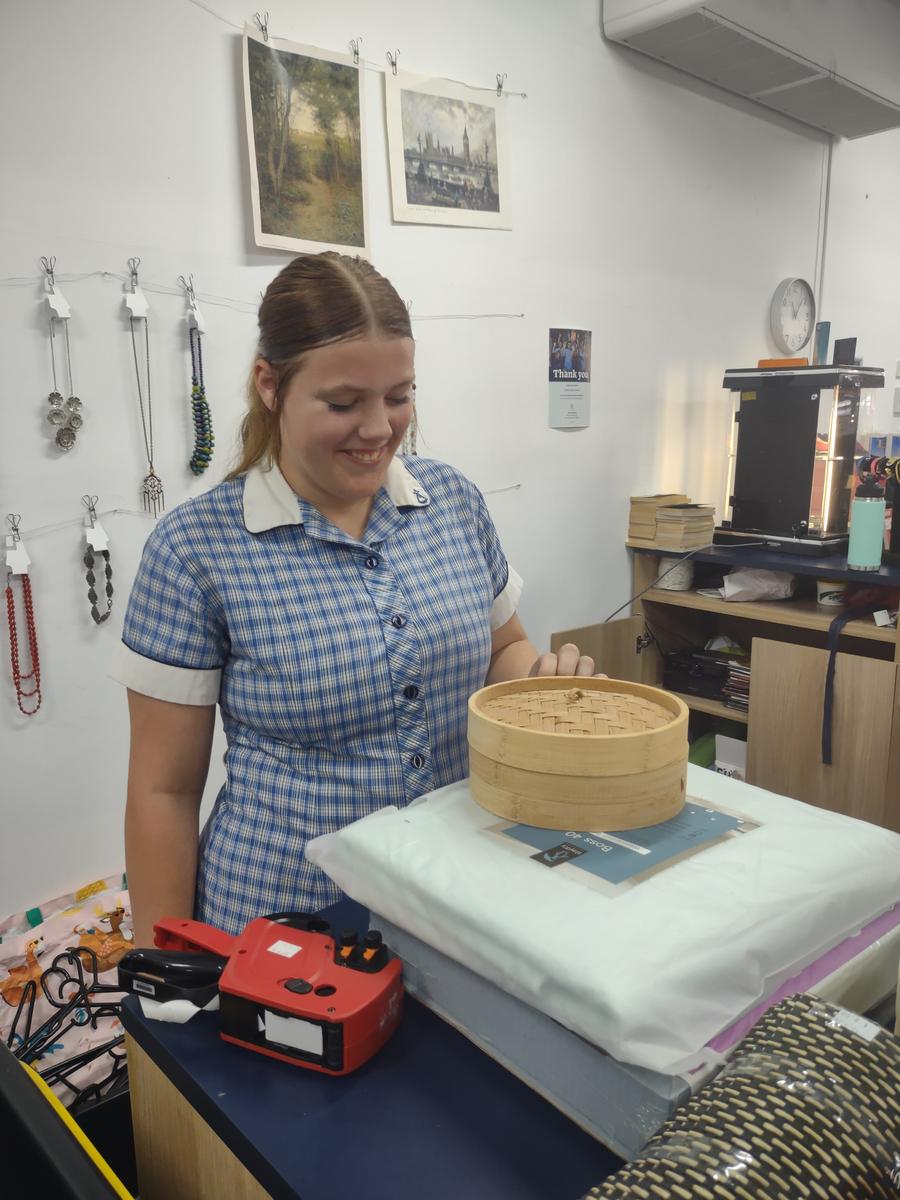
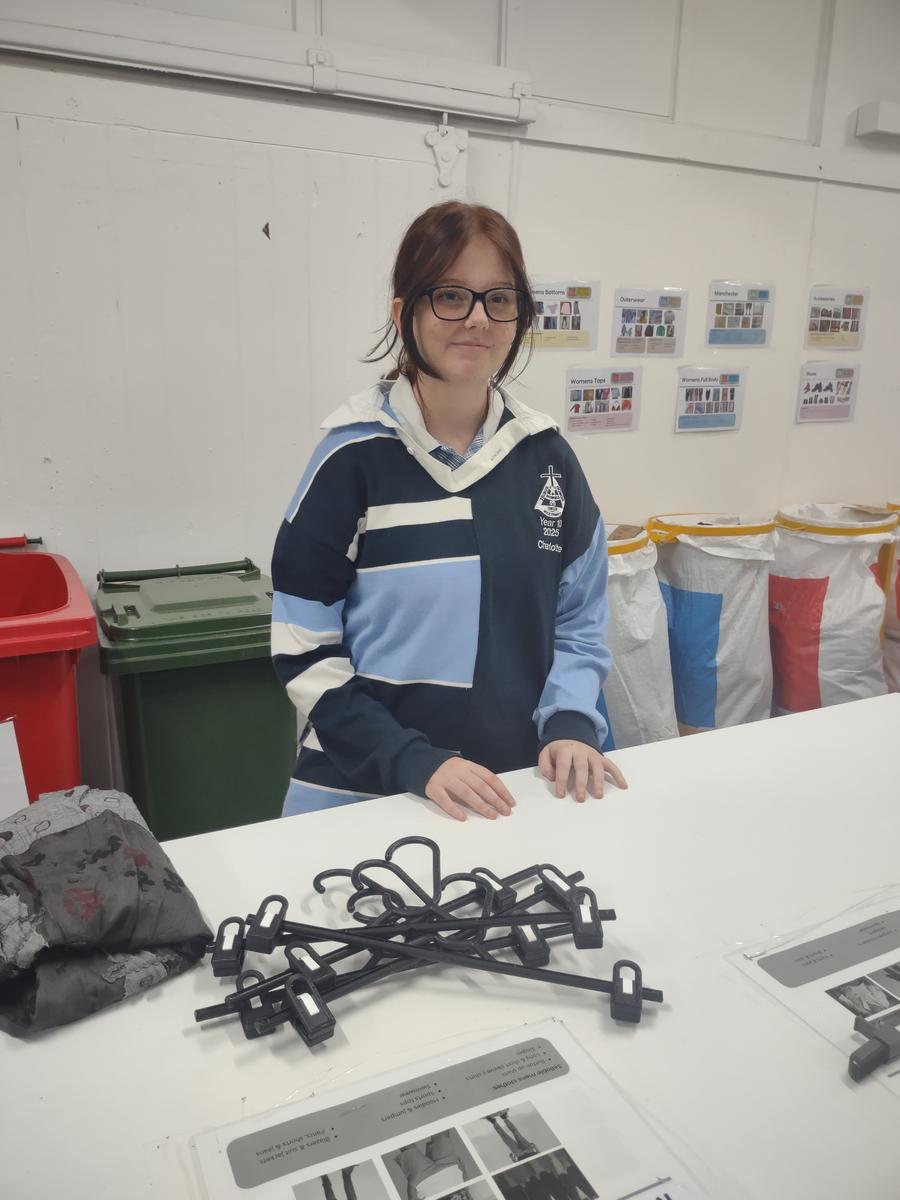

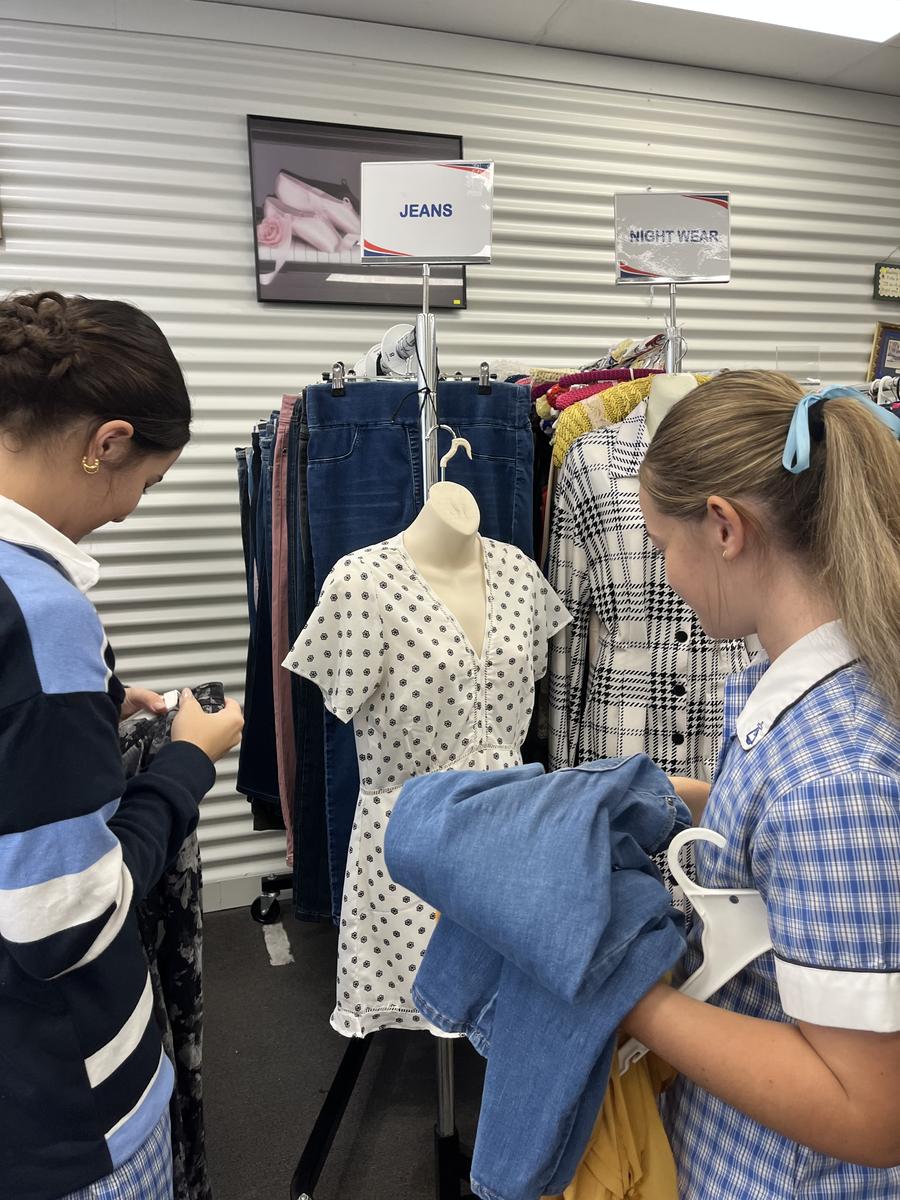
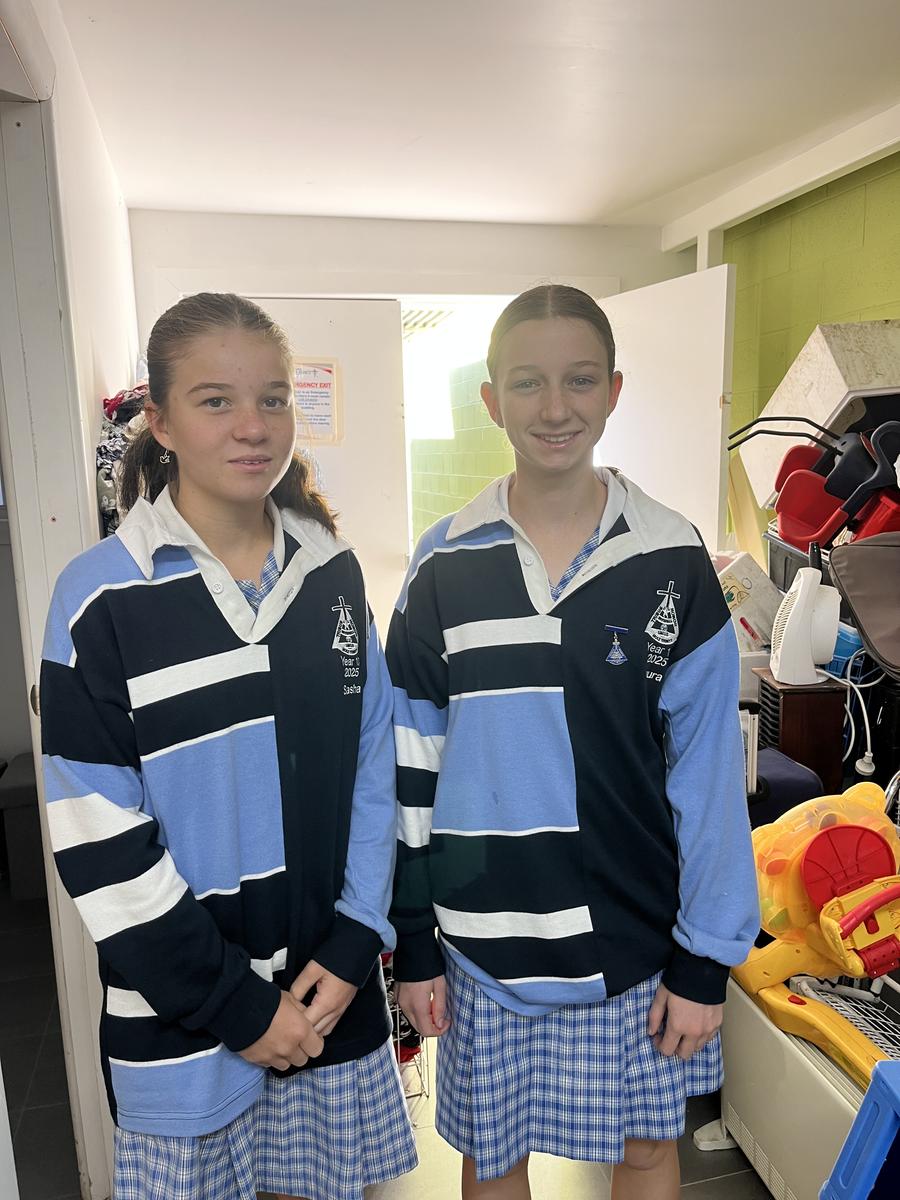
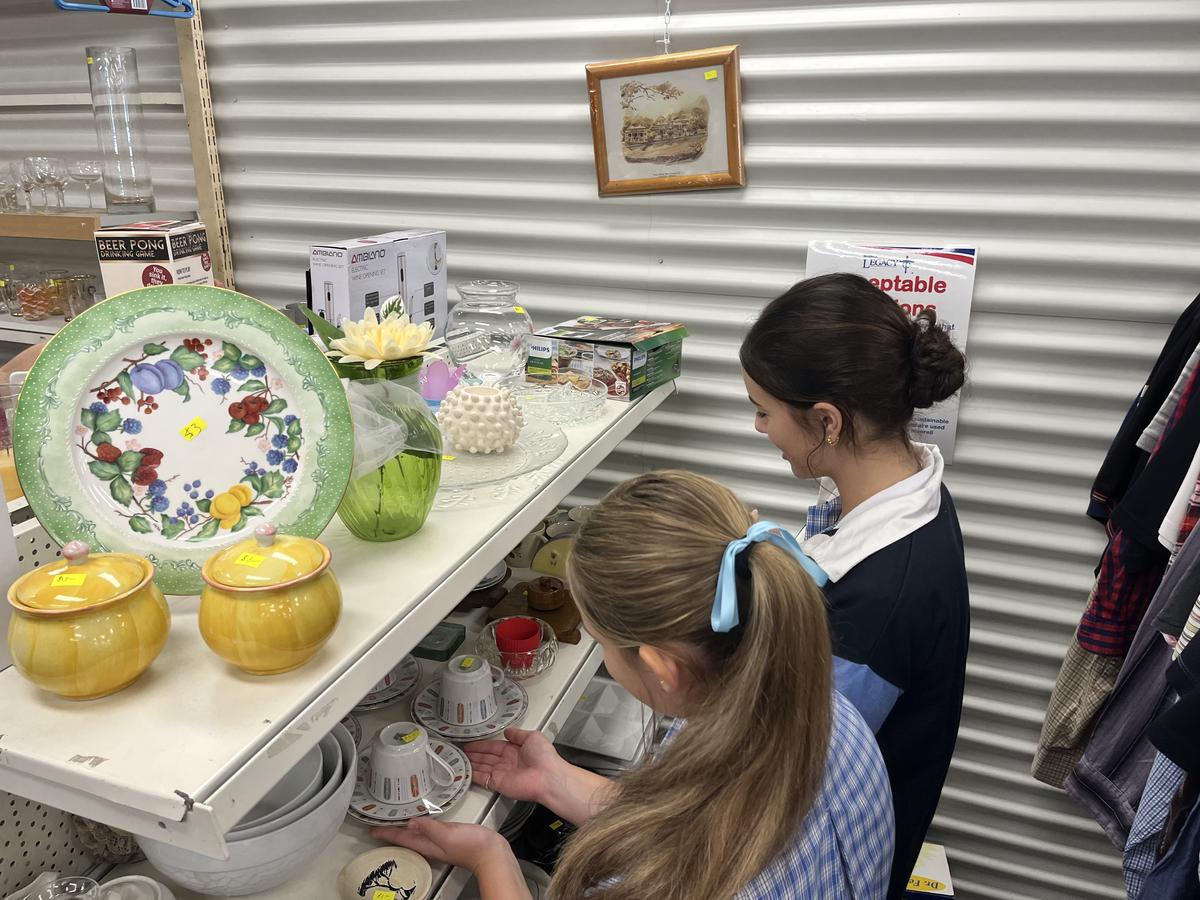
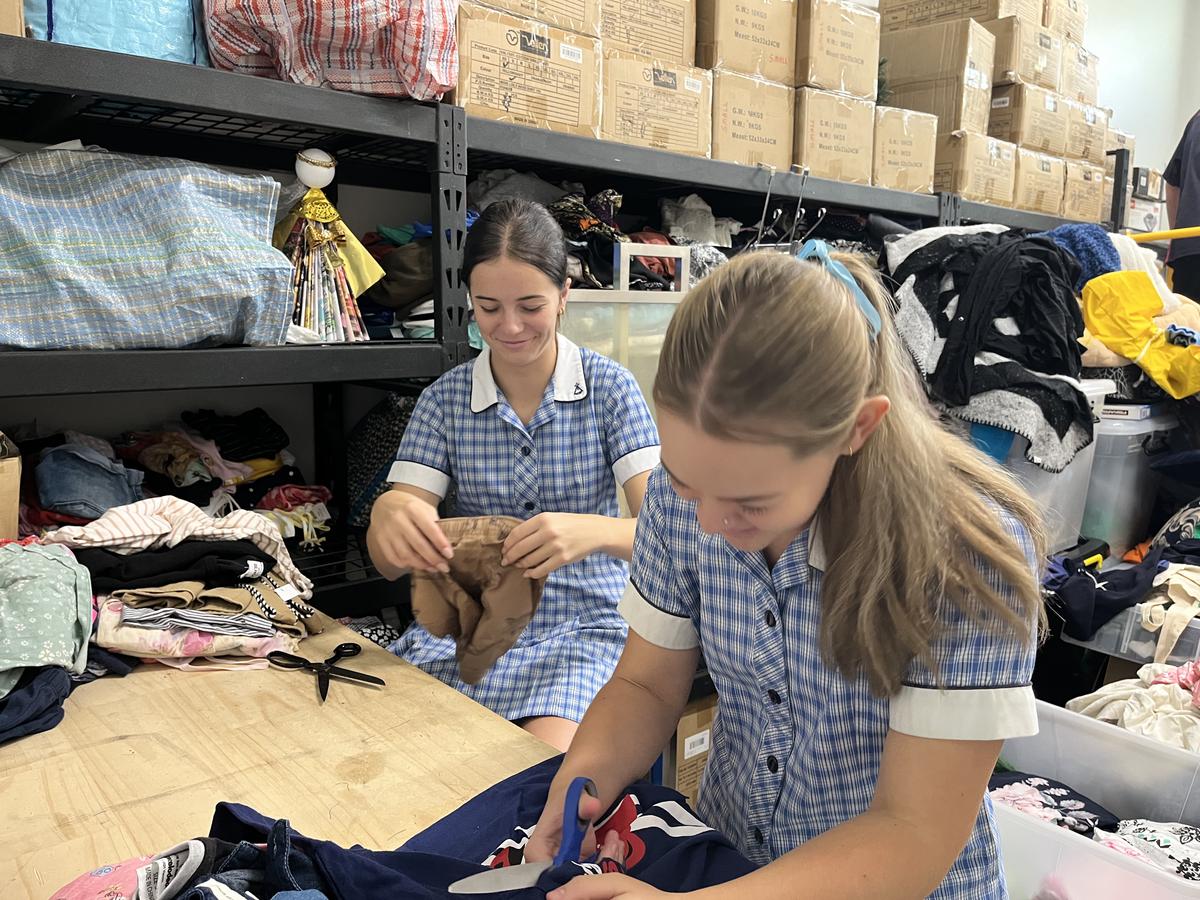
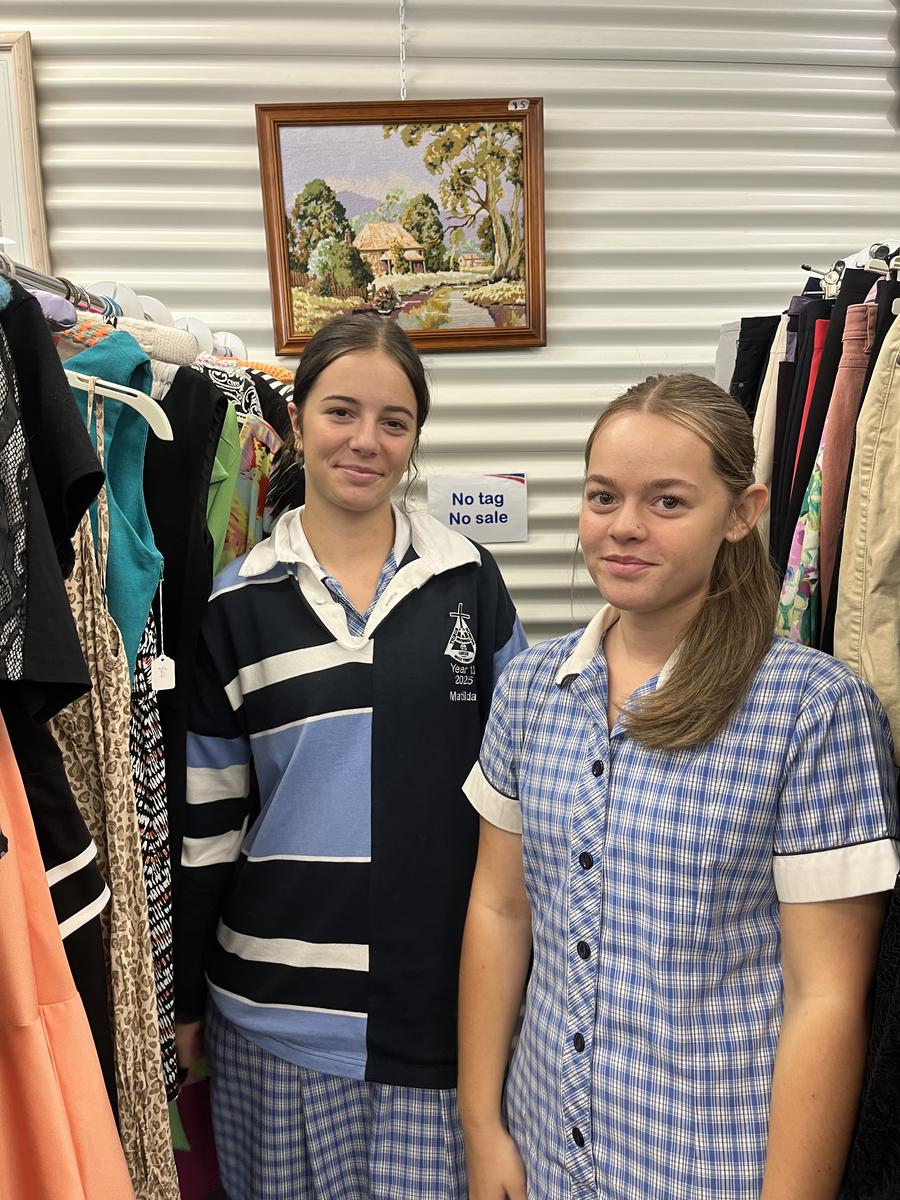
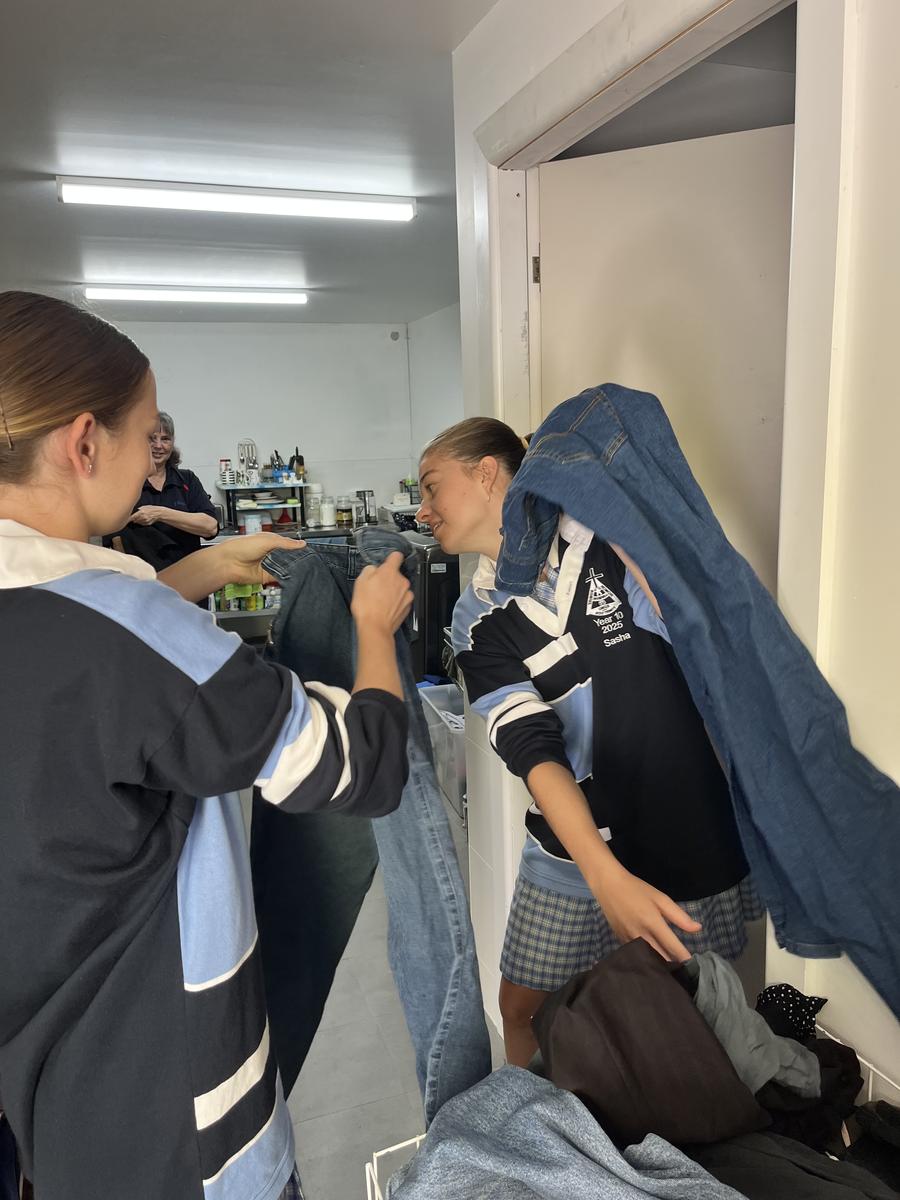
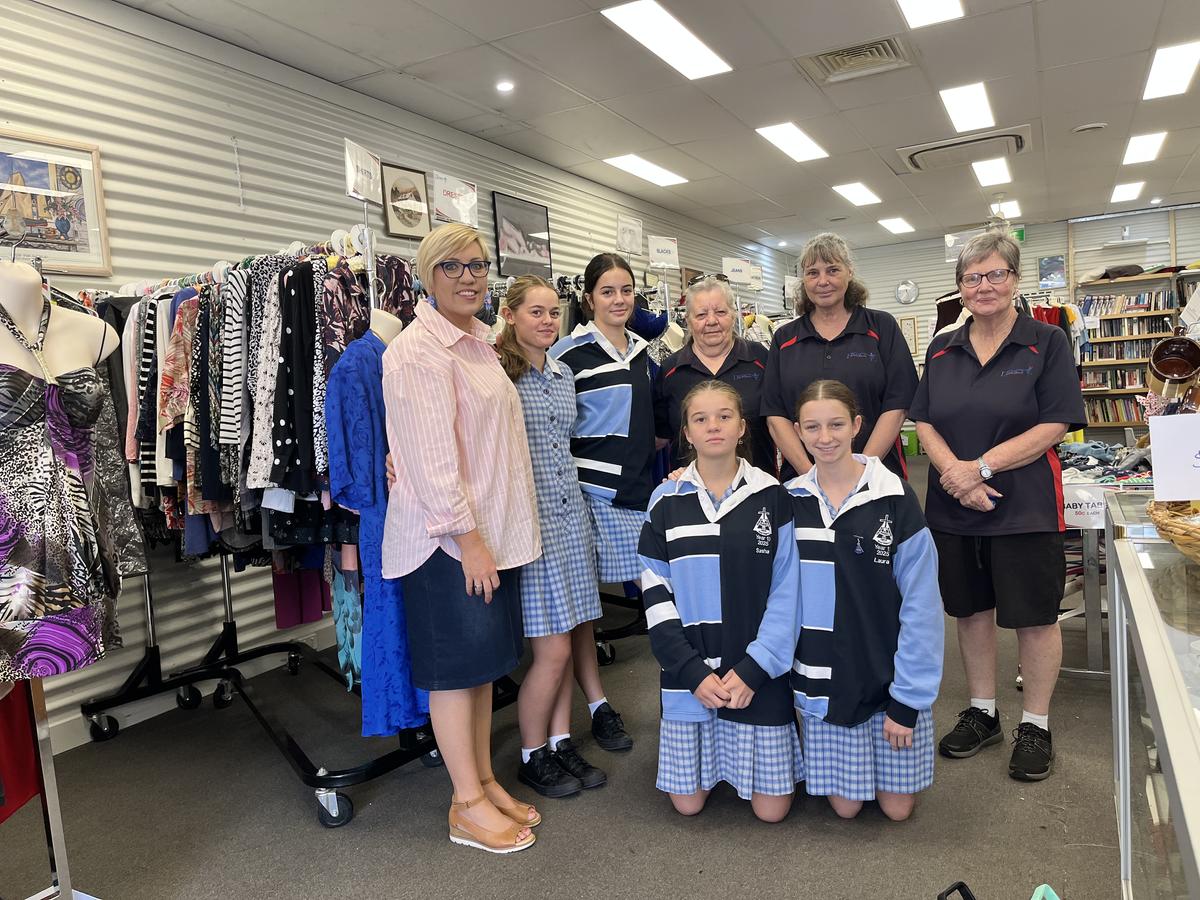

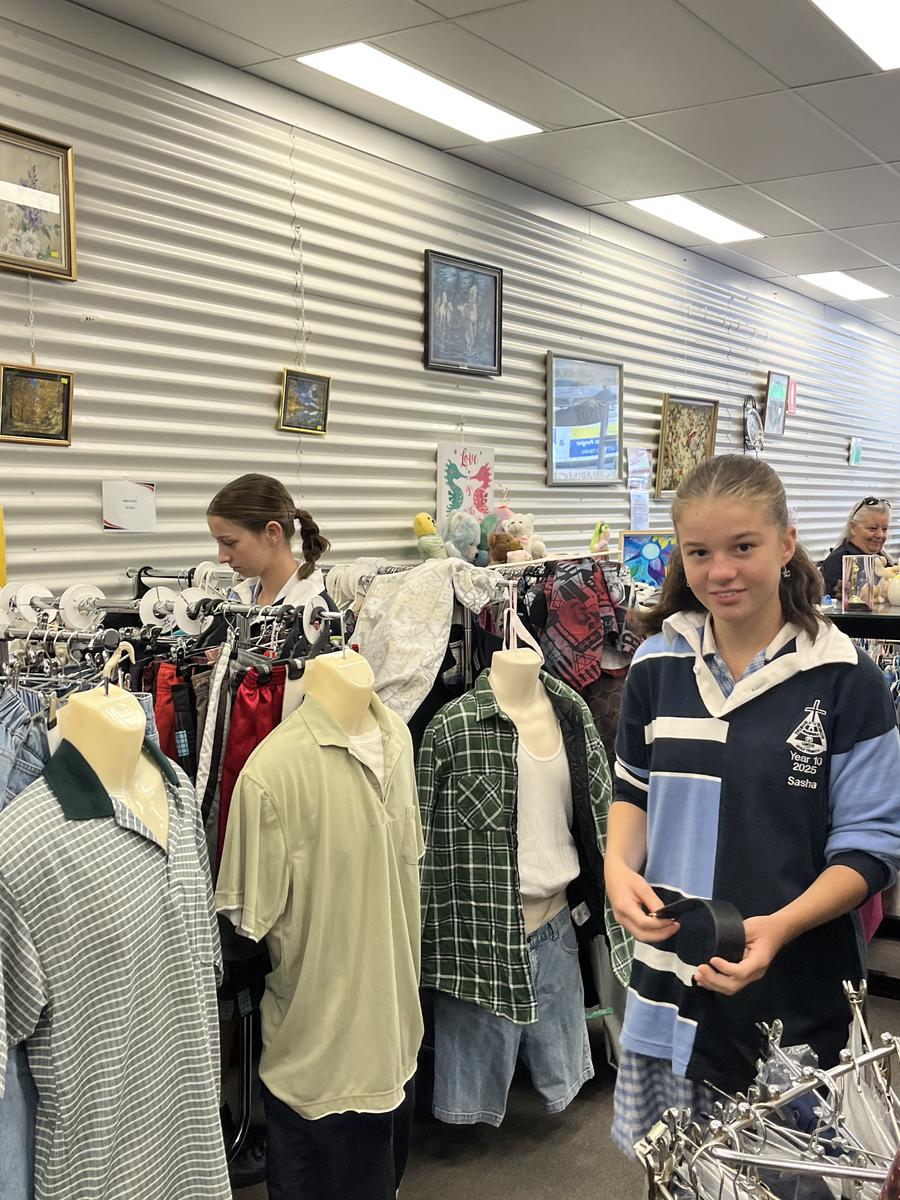

















We hope to see many interested community members at our information sessions on Wednesday. They will be held in the Hall at 12.00 pm and 5.30 pm.
Thank you to many parents and students who attended the Family Conferences for Years 7 – 10 last week. Parents unable to attend are encouraged to call the school and make alternative arrangements if they would like to have a conference with their child’s teachers.
Google Classroom allows teachers to create classes, distribute paperless assignments, post announcements and class questions, and provide feedback, all through an intuitive, student-friendly interface.
As parents, we recognise how important it is for you to keep up-to-date on your students' progress in their classes. Google Classroom provides a powerful feedback channel for parents called Guardian Email Summaries.
You should have received an email inviting you to see summaries of your child's Google Classroom activity.
If you accept the invitation, you can choose from daily (Monday - Friday) or weekly summaries. You do not have to accept the invitation; you can opt out anytime.
The flyer and link below provide you more information about Guardian Summaries. Please contact Miss Bailey if you have any further questions or issues.
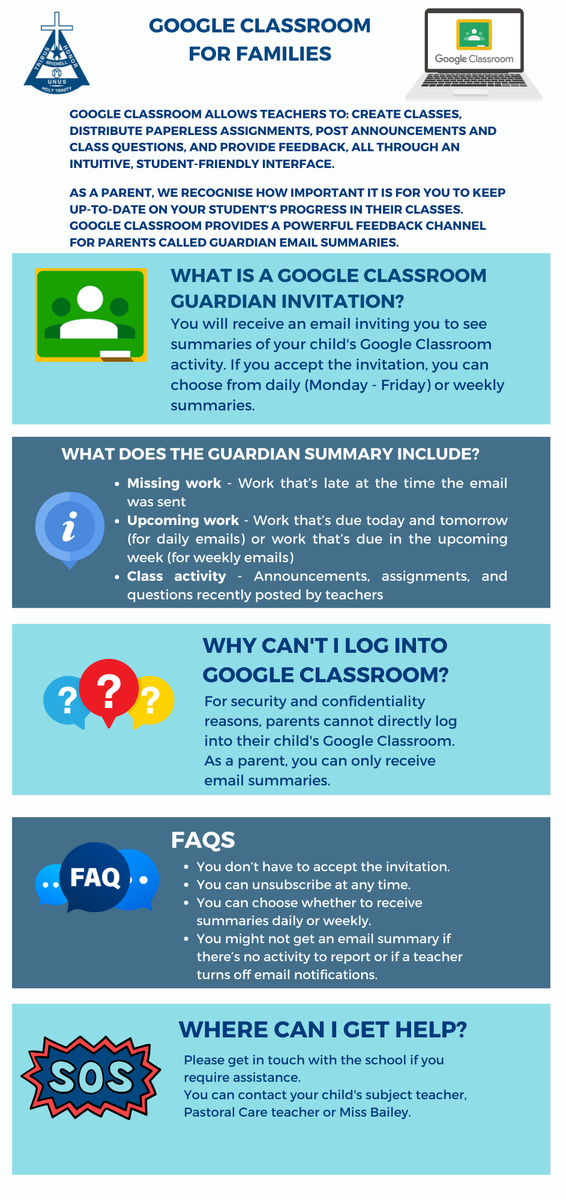
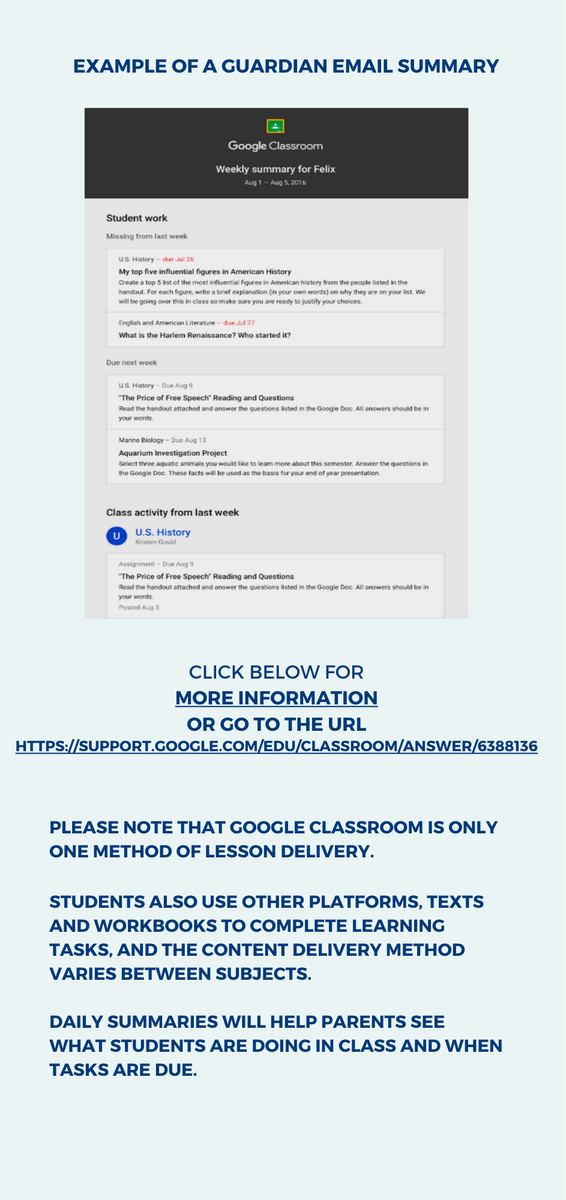


Stage 4 & 5 Assessment Guidelines
Students in Years 7 - 10 will receive their assessment booklets, which outline the assessment guidelines for the year.
For Stage 5 students, this important document contains vital information regarding the RoSA, Record of School Achievement.
It would be appreciated if parents could read the information in the booklet and discuss the issues raised with their children. The assessment process is similar to that which the students will encounter in Stage 6 as they prepare for their Higher School Certificate.
NAPLAN testing concluded yesterday for all students in Year 7 and Year 9. All students are congratulated for how they approached the tests and did their best at all times.
Literacy and numeracy skills are essential for success in learning and life after school. The HSC minimum standard was introduced to ensure students have the reading, writing and numeracy skills needed for everyday life, work and further study.
Students need to meet the HSC minimum standard to receive the HSC. To show they meet this standard, students must achieve Level 3 in short online reading, writing, and numeracy tests. Your child will have multiple opportunities to show they meet the HSC minimum standard. These tests can be taken when your child is ready—be that this year, in Year 11 or 12, or after the HSC.
For more information and flyers about the online tests and their components, visit the NESA website: https://educationstandards.nsw.edu.au/wps/portal/nesa/11-12/hsc/hsc-minimum-standard.
Please return the slip on the note sent home if you DO NOT wish your child to sit the trial online tests. If you have any questions, please contact Miss Bailey.
Last week, students were invited to Rate a Mate in Week 8.
Sometimes, good deeds go unnoticed, and we would like to change this at Holy Trinity.
Students were offered the opportunity to say thanks and recognise peers for the good things that always happen.
Students were encouraged to tell us about someone who followed our 'Rules for Living'.
This could have included many things - they may have made someone feel safe, valued, respected and cared for, helped someone in their learning, or always shown commitment to their learning.
The acknowledgement is anonymous and collected via Google Forms. Congratulations to the following students who were 'rated by a mate'.
| Alex Kuhn |
| Elsie Wright |
| Roxy Pettiford |
| Sophia Clarke |
| Georgie Moore |
| Kobe Holder |
| Tobias Murphy |
| Marley Schutz |
| Jack Mason |
| Des Collins |
| Albert Taylor |
| Isabel Bryant |
| Cruz Taylor |
| Brooklyn Simpson |
| Lacey Taylor |
| Eleana Lopez |
| Cooper Nelson |
| Eva Jinesh |
| Eva Xavier |
| Zalie Borrowdale |
| Amirri-May Nelson |
| Jack Sweeney |
| Jordi Cummins |
| Paige Potter |
| Hailee Zell |
| Josie Langan |
| Korrine Cleary |
| Billy Pagden |
| Violet McBean |
| Asha Randall |
| Willow Garrett |
| Pippa Lynch |
| Beau Butcher |
| Kaden Blair |
| Julian Collins |
| Abel Jinto |
| Ella Walford |
| Izaak Simpson |
| Maria Brandao |
| Bohan Randall |
| Chloe Worgan |
| Nate Reynolds |
| Morgan Lawry |
| Lachlan Tindall |
| Ryan Hill |
| Kirby Kasper |
| Kier Afable |
| Zara Butcher |
| Ruby Parrella |
| Lachlan Postrak |
| Grace Doyle |
| Kaden Blair |
| Naomi Robinson |
| Oskar Devlin |
| Baxter Hawkins |
| Seth O’Neill-Yee |
| Pate Dresu |
| Sheldon Brown |
| Joe Delaney |
| Kobe Butcher |
| Jordan Frazier |
| Archie Sterling |
| Aidan Readett |
| Joseph Schwarze |
| Samuel Mitrega |
| Millie Taylor |
| Harriett Webber |
| Haylee Phillipps-Lewis |
| Kadee O’Connell |
| Tamsin Pettiford |
| Sheldon Brown |
| Kadia Tyers |
| Darcy Oakes |
| Samuel mitrega |
| Fred Miller |
| Kadie Sayer |
| Max Sweeney |
| Harriett Webber |
| Jed Langan |
| Sasha Bryant |
| Halina Huynh |
| Jed Emery |
| Aksel Hutchings |
| Rory Tonkin |
| Hannah Sanderson |
| Aksel Hutchings |
| Georgina Taylor |
| Josie Harvey |
| Cooper Wilson |
| Bailey Hobbs |
Should you listen to music when studying? In an ideal world, we would probably say no music while doing schoolwork except classical baroque/instrumental music which can help your memory by getting the brain into a relaxed state. But a good compromise is as follows. If the work is not very difficult and fairly routine, then you can have whatever music you like on. It will make you feel relaxed; it will make you feel like the time is going faster and help you stick to completing the work you need to do. But if the work requires higher-order thinking skills, i.e. studying for a test, trying to understand something difficult, doing an essay plan, trying to learn or remember anything – then switch the music off. Otherwise, it will end up taking you much longer to complete the task and to retain what you are learning (even though you are convinced it is not affecting you!). Just get in the
habit of stopping and asking yourself each time before you start work whether it is the type of work that requires you to really focus and concentrate and if it is – switch the music off for a while. The same approach goes for doing work in front of the TV.
Parents are often at a loss about how to manage the amount of time children spend using technology. This is becoming particularly difficult as students are required to not only undertake their research electronically but also to complete their work from school either online or at least on the computer. It can be hard to tell whether your child is doing legitimate work, or working legitimately with “study buddies” online, or whether or not they are getting distracted by gaming, social media and the like.
Here are the Top Ten tips to help you manage your child’s technology use.
Model good technology behaviour
Parents are the number one role model for students.
If you are always on your phone, iPad or computer, even if it’s for work, you are sending the message that this is appropriate. Make sure you regularly take time to “unplug” and demonstrate that it’s more important to engage with people than technology. For example, turn off your phone when you are having family time (even for a short burst) or rather than watching a family movie, organise a family outing.
Try to understand the technology your child is using and why
Some students will happily use the technology available to help them with their homework without getting distracted. Many will easily become distracted by, or will prioritise, social media, online gaming, apps related to their interests, YouTube, etc. To help your child manage these distractions, it is useful to spend time with them to understand what they are using technology for and why. Developing this understanding will help you set limits which are reasonable to both parties.
Set clear limits in relation to technology time
Parents need to decide what they consider to be a reasonable amount of technology time per day and per week. As mentioned above, understanding why and how your child is using technology will inform this decision. What works for each family will be different, but options include: no technology before school, technology for a particular amount of time each day, electronic games on the weekend only. It’s vital to be consistent with whichever system you choose for it to work well.
Monitor technology use
If you aren’t sure what your child is doing when they are on the computer (homework or something else), then move the computer to where you can monitor what they are doing. This can be difficult depending on your family and space available. If it’s not possible to move the child/computer, consider doing quiet activities in the space they are using, such as reading or ironing, to monitor their use. From: www.studyskillshandbook.com.au – only for use by schools who are current subscribers Copyright © Enhanced Learning Educational Services 2014 www.enhanced-learning.net
Establish “screen-free” systems - days, spaces, etc.
Make sure technology doesn’t dictate your home and family life. Establish “screen-free” spaces, e.g. the kitchen and dining table. Perhaps have a screen-free day on the weekend? This encourages the whole family into more active pursuits and positive interactions.
Centralise storage of handheld devices
Have a rule that all handheld devices are stored in one place (along with their chargers) so when it’s not an approved technology time, the device is away and not causing a distraction.
Use technology time as a reward
Show that you can be reasonable and flexible. If your child has done all their schoolwork and has enjoyed other activities/completed chores, etc., there is no reason why some additional screen time can’t be used as an occasional reward. However, mixing up the rewards with other activities will benefit the whole family.
Provide lots of opportunities for physical activity and socialising
Time that used to be spent in physical activity or more creative leisure pursuits is now often spent on technology. Providing opportunities for students to participate in meaningful and enjoyable activities away from technology helps them to find other interests and connect with people. Options include organised sports, playing music, learning a new skill, etc.
Use parental controls to block particular sites
Parental controls are useful for blocking particular websites that have inappropriate content or that your child gets easily distracted by. The Australian Government’s CyberSmart program makes various recommendations https://esafety.gov.au/
Change the Wi-Fi password
If nothing else works, and your child is constantly on social media or surfing the net, consider changing the Wi-Fi password. Whilst it’s an extreme measure, it is sometimes useful as a reminder that there are other things that need to be done.
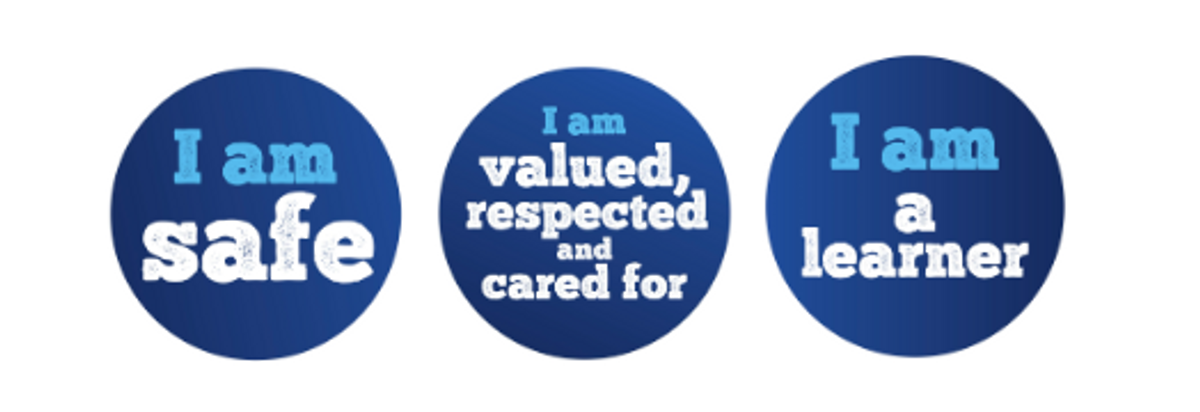

Pastoral Care teachers will be checking in with the students in their class each morning to ensure that they are Ready2Learn. All students have received the information below and were encouraged to show their families and discuss how to be Ready2Learn each day. Pastoral Care teachers will be able to help students start the day in a positive way. Please ask your child about this and support them to be Ready2Learn.
Students are being asked to ensure that they understand these elements and have all their equipment and uniforms by the start of Week 6. The infographic also outlines what to do if there is a problem with doing this and who you can go to for assistance.
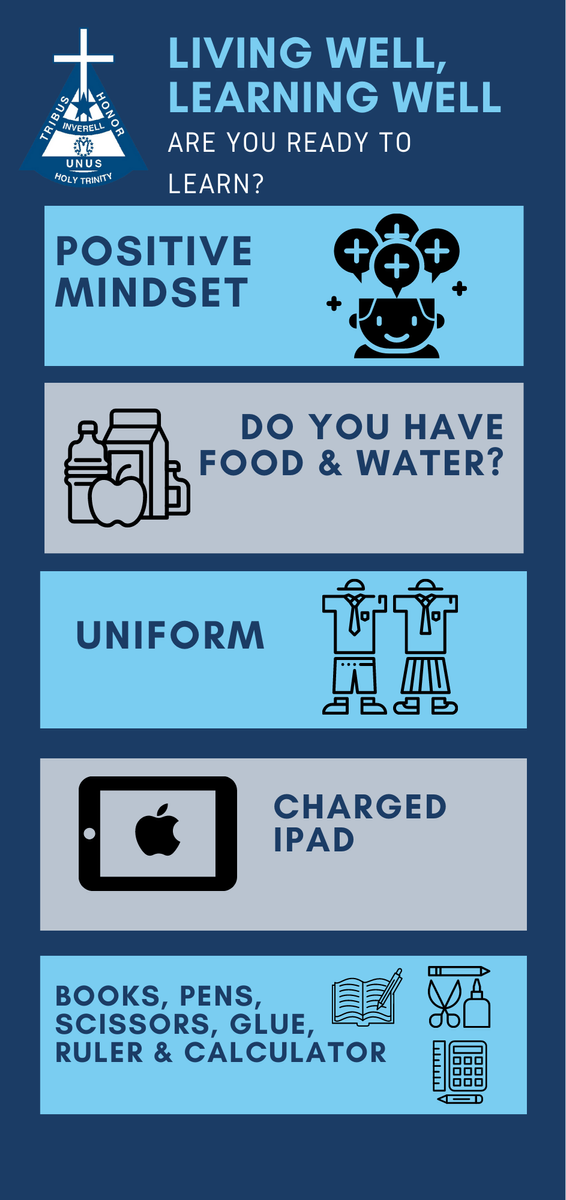
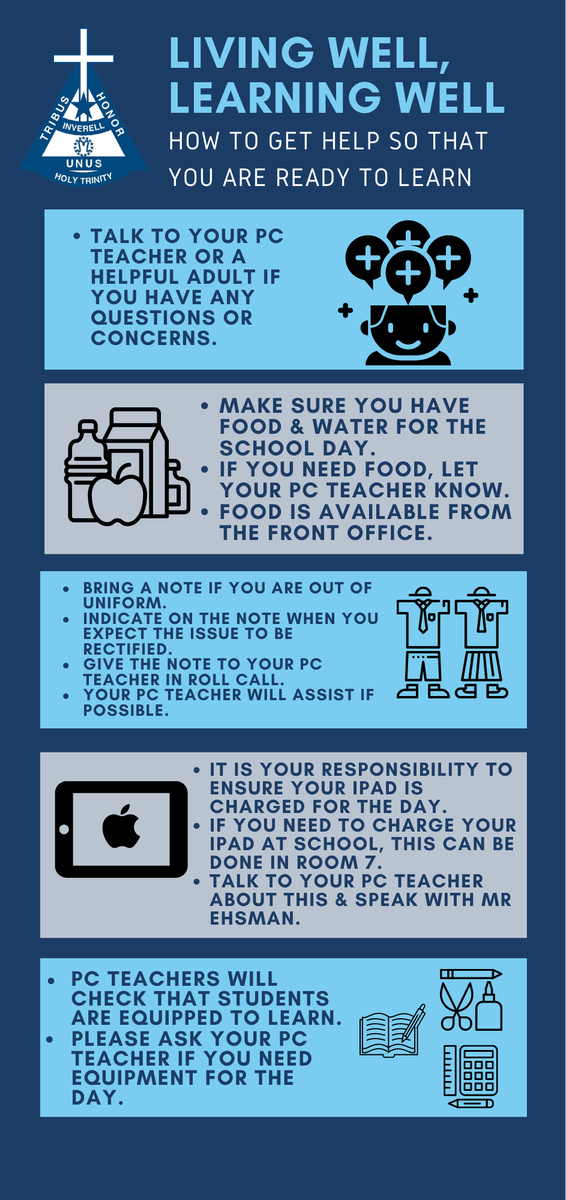


Students are not permitted to use their devices unless instructed by a teacher. This includes both the classroom and the playground. The students are aware of this policy and receive constant reminders in Pastoral Care, their teaching classes and there are also many posters displayed all around the school.
If a student needs to use their device, they must first seek permission from a teacher and use it in an area designated by the teacher. This is usually under their direct supervision or outside the Secondary staffroom.
If students are unable to follow this policy, then their phone is confiscated and placed securely in Miss Bailey's office, where it is collected by the student at the end of the school day.
Teachers record each time a device has been confiscated. After the device has been confiscated for a second time, it remains at school until it can be collected by a parent/carer.
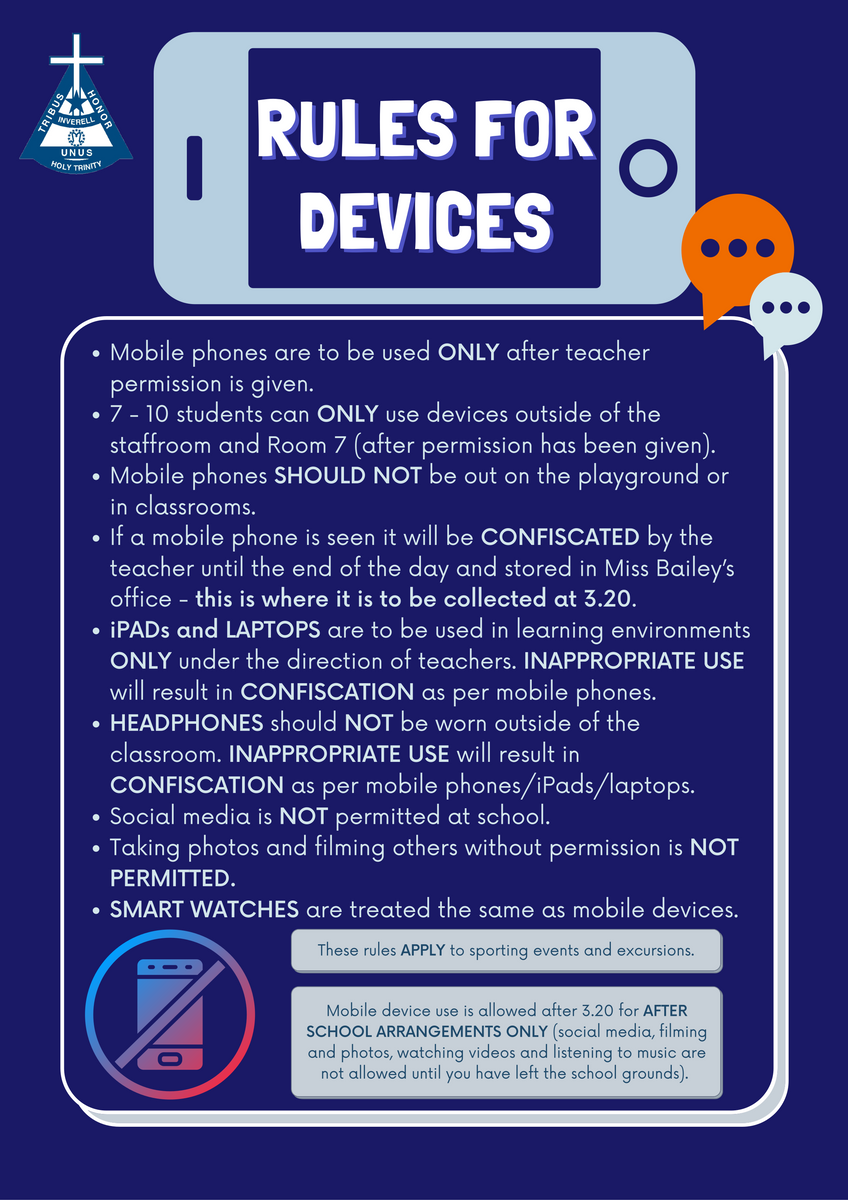

Year 7:
7J – Mr Jack Jeffery
7K – Miss Kristina Majetic
7M – Mrs Veronica McCormick
7W – Mrs Carrie Watchirs
Year 8:
8G - Mr Anthony Gaias
8M – Mr Ricky Muggleton
8T- Mrs Jane Taylor
8W – Mr Sam White
Year 9:
9C – Mrs Claudia Dolbel
9E – Mr Jeremy East
9G – Miss Lauren Green
9M – Mrs Christine McLachlan
Year 10:
10C - Miss Claudia Cush
10K – Mr Blake Uebergang.
Students and parents are encouraged to approach the relevant Pastoral Care teacher if they need assistance.
Miss Kim Bailey
Mr Sean Baldwin
Mrs Kylie Butler
Miss Claudia Cush
Mrs Angela East
Mr Jeremy East
Mr Peter Ehsman
Mr Anthony Gaias
Miss Alana Goldman
Miss Lauren Green
Mrs Mary-Jane Guest
Mrs Malynda Hiscock
Mr Jack Jeffery
Mr David Koch
Mrs Veronica McCormick
Mrs Christine McLachlan
cmclachlan@arm.catholic.edu.au
Mr Ricky Muggleton
rmuggleton@arm.catholic.edu.au
Mr Matthew Pye
Mrs Kristen Smith
Mrs Jane Taylor
Mrs Katherine Townsend
Mr Blake Uebergang
Mrs Carrie Watchirs
Staff can be contacted directly using the email address above or via the Compass portal.